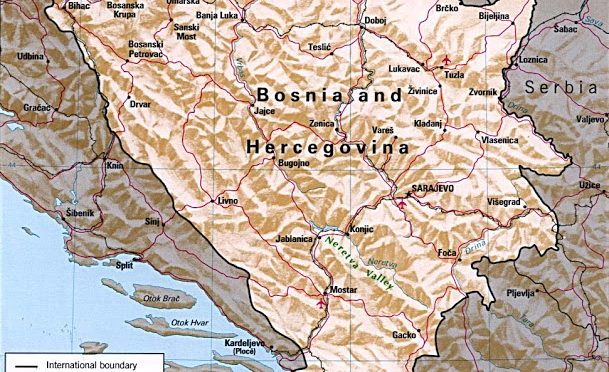Bosnia and Herzegovina, a country in the Balkan Peninsula, has a unique energy landscape that offers significant opportunities for technological innovation and the development of renewable energy sources. The country’s energy sector is characterized by a high reliance on fossil fuels, particularly coal, which accounts for around 67% of its total energy consumption. However, Bosnia and Herzegovina is also endowed with abundant renewable energy resources, such as hydropower, solar, wind, and biomass, which have the potential to transform its energy mix and contribute to sustainable development.
The government of Bosnia and Herzegovina has recognized the importance of transitioning to a more sustainable energy system and has set ambitious targets for the development of renewable energy. The country aims to increase the share of renewable energy in its gross final energy consumption to 40% by 2020, up from 34% in 2009. To achieve this goal, Bosnia and Herzegovina has adopted a range of policy measures and incentives to encourage investment in renewable energy projects and promote the adoption of clean technologies.
One of the most promising renewable energy technologies in Bosnia and Herzegovina is hydropower. The country has significant hydropower potential, with an estimated 6,000 MW of capacity, of which only around 20% has been exploited so far. The development of small and medium-sized hydropower plants, in particular, offers significant opportunities for rural electrification and the creation of local jobs. Moreover, hydropower can provide a reliable source of electricity, helping to reduce the country’s dependence on imported fossil fuels and enhance its energy security.
In addition to hydropower, Bosnia and Herzegovina has considerable potential for the development of solar energy. The country enjoys an average of 2,000 hours of sunshine per year, which translates into a solar energy potential of around 1,200 kWh/m2 annually. Despite this potential, the installed capacity of solar photovoltaic (PV) systems in Bosnia and Herzegovina remains relatively low, at around 20 MW. However, the falling costs of solar PV technology, combined with supportive policy measures, such as feed-in tariffs and net metering, are expected to drive the growth of the solar energy market in the coming years.
Wind energy is another promising renewable energy technology in Bosnia and Herzegovina. The country has an estimated wind energy potential of around 1,000 MW, with particularly favorable conditions for wind power generation in the southern and western regions. Several large-scale wind farms are currently under development, including the 50 MW Mesihovina wind farm and the 72 MW Podvelezje wind farm, which are expected to significantly increase the country’s wind energy capacity.
The development of renewable energy technologies in Bosnia and Herzegovina faces several challenges, including limited access to finance, inadequate grid infrastructure, and a lack of public awareness about the benefits of clean energy. To overcome these barriers, the government and international partners, such as the European Union and the World Bank, are providing financial and technical support for renewable energy projects and capacity-building initiatives.
In conclusion, Bosnia and Herzegovina has significant potential to develop its renewable energy resources and harness the power of technology to transform its energy sector. By investing in clean energy technologies and adopting supportive policy measures, the country can not only achieve its renewable energy targets but also contribute to global efforts to combat climate change and promote sustainable development. The intersection of energy and technology in Bosnia and Herzegovina offers a unique opportunity to create a more sustainable, secure, and prosperous future for its citizens.


